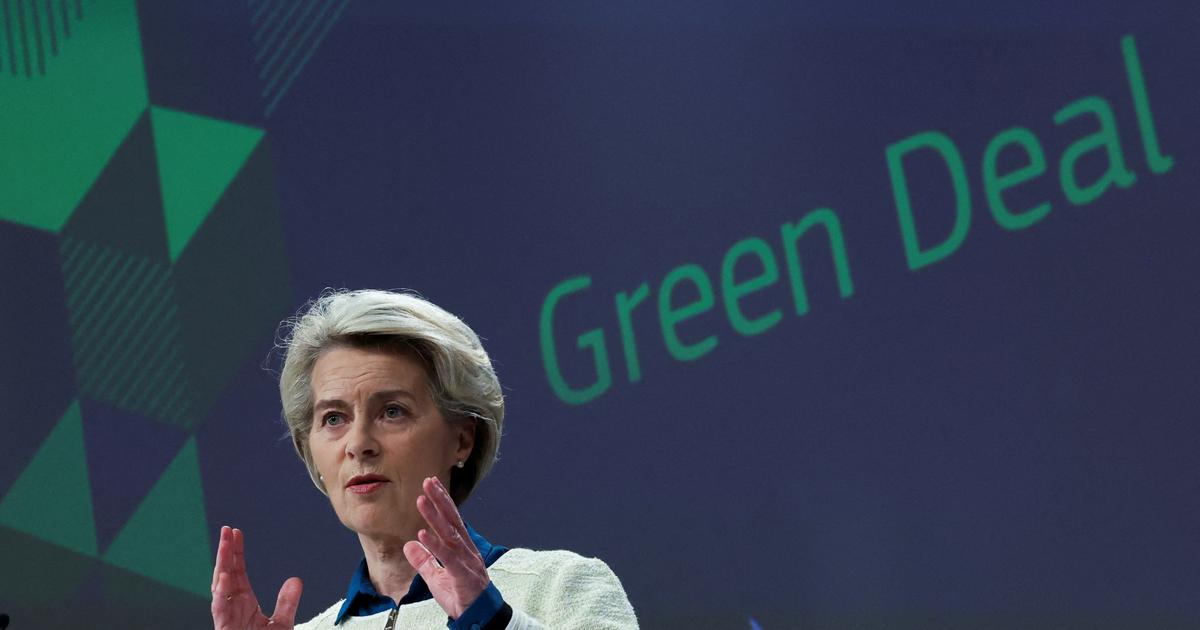François-Joseph Schichan is a former diplomat, consultant in geopolitics and European affairs at the consulting firm Flint Global.
The decline of European industry is accelerating, and the European Union remains powerless.
Latest threat to date: the massive subsidies granted by the American government to its industry via the
Inflation Reduction Act
(IRA).
This law passed by the US Congress in the summer of 2022 authorizes, among other provisions, spending of more than 390 billion euros (369 billion dollars) in favor of renewable energies and sustainable development.
It also imposes the assembly in North America of certain products such as electric cars.
It is one of the largest US government industrial support programs in decades.
The danger represented by these massive subsidies has been clearly identified by the European institutions and certain Member States.
The risk is the disappearance of entire sections of European industry, unable to face up to American competition, at a time when its competitiveness is suffering from high energy prices.
For their future investments, European companies are also likely to prefer the United States to Europe.
Protests have been transmitted to Washington, including by Emmanuel Macron during his state visit to Washington in December 2022. The Biden administration has refused: it will not rewrite its law, and if so she wanted to, she probably couldn't given the new political balances in Congress resulting from the November 2022 midterm elections.
Faced with the foreseeable refusal of the United States to modify its approach, the debate therefore moved to Brussels and between the Member States.
Within the European Commission, the interventionists, embodied within the Commission by Thierry Breton, opposed the liberals, represented by Commissioner Margrethe Vestager, in charge of competition.
Even aware of the risks posed by the IRA for European industry in an unfavorable economic context, the European executive remains largely disunited.
The United States confirms the protectionist tendency of successive American administrations.
If it were still necessary to recall it, whether it is Trump or Biden, it is "America First" to defend the economic interests of the country.
Francois-Joseph Schichan
To the divisions within the Commission are added those between Member States.
Some fear an economic and commercial conflict with the United States – without seeing that this is, in fact, already underway.
Others do not want to give France or Germany, which have greater budgetary leeway, the possibility of massively supporting their industry to the detriment of their own.
Finally, there are those who remain attached to the evangelizing mission of the European Union in favor of free trade and free and undistorted competition, and who believe that it must continue to set an example by limiting the ability States to act in the economy.
Germany, for its part,
These divisions have so far resulted in measures that are not up to the challenge and leave European industry largely helpless.
The European Commission has proposed a relaxation of state aid rules to allow Member States to support their industry in the renewable energy and sustainable development sectors – but this relaxation will only be temporary and targeted, subject to authorizations from the European Commission. European Commission, and without credible funding.
Moreover, these proposals risk being weakened during the forthcoming negotiation process.
The situation of European industry is not going to improve.
With these massive subsidies, the United States confirms the protectionist tendency of successive American administrations.
If it were still necessary to recall it, whether it is Trump or Biden, it is "America First" to defend the economic interests of the country.
For its part, China also subsidizes its industry, particularly in the renewable energy and sustainable development sectors.
The European Union is therefore caught in the grip of competition between the great powers.
The much-vaunted unity of the western camp over the war in Ukraine is no longer relevant in terms of economic interests.
European divisions over the IRA response reflect fundamental differences between member states' economic and industrial structures
Francois-Joseph Schichan
Ultimately, the European divisions on the response to the IRA reflect the fundamental differences between the economic and industrial structures of the Member States.
For one thing, these differences are not reconcilable.
The European approach should take this into account by giving Member States more leeway.
For its part, the United States has in mind not European protests, but competition with China and the maintenance of its preeminence in the economic sectors of the future.
And to this end, they are ready to accept and even favor an acceleration of the economic and industrial decline of Europe.

